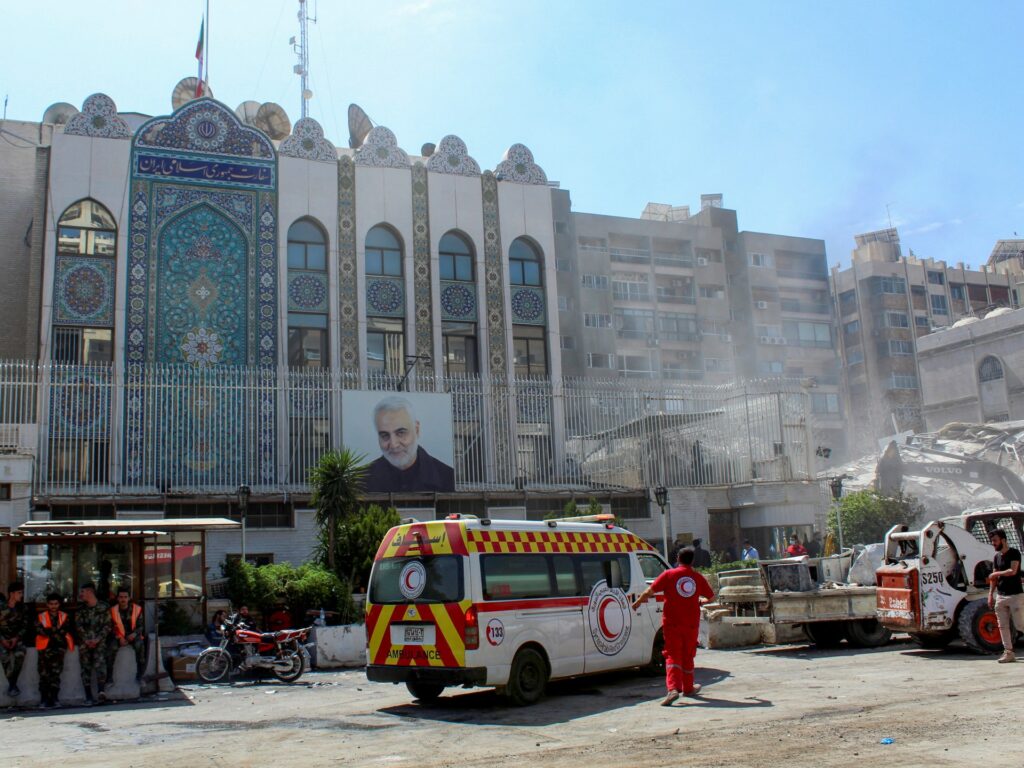Iran’s consulate in Damascus was destroyed in a suspected Israeli missile attack, prompting Tehran to promise a response. The Iranian mission to the United Nations suggested that if the UN Security Council had condemned Israel’s attack, Iran may have avoided the need to retaliate. However, with tensions rising and reports of an imminent Iranian attack on Israel, fears of a regional war are growing.
Iran has vowed a “decisive” response to the Israeli assault that killed seven members of its Islamic Revolutionary Guard Corps in Damascus. Iranian Foreign Minister Hossein Amir-Abdollahian has been in talks with various counterparts, including from Qatar, Saudi Arabia, the UAE, Iraq, and Germany, to discuss the situation and urge for de-escalation.
The United States has pledged its support for Israel, warning Iran against attacking its ally. US President Joe Biden reiterated the US commitment to Israel’s security and stated that the US would help intercept any Iranian threats against Israel. US Secretary of State Antony Blinken also reaffirmed US support for Israel’s security during a phone call with Israeli Defence Minister Yoav Gallant.
Meanwhile, Israeli Prime Minister Benjamin Netanyahu has warned Iran and other adversaries that Israel is prepared to respond to any threats. Netanyahu stated that Israel will meet its security needs both defensively and offensively. The Israeli military has a history of targeting Iran-linked sites in Syria, but the attack on the Iranian consulate in Damascus has sparked international condemnation.
As tensions continue to escalate, the region is on edge, with fears of a broader conflict looming. The international community is calling for restraint and de-escalation to prevent further violence and instability in the Middle East.
#Tensions #rise #expectations #Iran #retaliation #Israel
The escalating tensions between Iran and Israel following the destruction of the Iranian consulate in Damascus by Israeli forces have significant long-term implications for the region. The promise of a “decisive” response from Iran and the strong statements from both sides indicate a potential for further conflict and instability in the Middle East.
The involvement of other countries, such as the United States, Germany, and Russia, adds another layer of complexity to the situation. The US has pledged unwavering support for Israel and has warned Iran against any military action. Germany and Russia have issued travel warnings and taken precautionary measures, indicating their concerns about the escalating tensions.
The possibility of a regional war and the involvement of various actors in the conflict raise concerns about the broader implications for peace and security in the region. The recent attacks and threats highlight the fragile nature of the situation and the potential for a wider conflict to erupt.
In light of these developments, it is crucial for all parties involved to exercise maximum restraint and prioritize diplomatic solutions to de-escalate the situation. Dialogue and engagement are essential to prevent further escalation and avoid a full-blown conflict.
Actionable advice based on these insights includes:
1. Encouraging diplomatic efforts: All parties should engage in dialogue and negotiations to address the underlying issues and find peaceful solutions to the current tensions.
2. International cooperation: The international community should work together to support efforts to de-escalate the situation and prevent further conflict in the region.
3. Crisis management: Establishing mechanisms for crisis management and communication channels between the involved parties can help prevent misunderstandings and miscalculations that could lead to escalation.
4. Humanitarian considerations: Amidst the geopolitical tensions, it is important to prioritize the protection of civilians and ensure their safety in conflict zones.
Overall, a multifaceted approach that combines diplomatic efforts, international cooperation, crisis management, and humanitarian considerations is essential to address the long-term implications of the rising tensions between Iran and Israel and pave the way for a peaceful resolution of the conflict.

